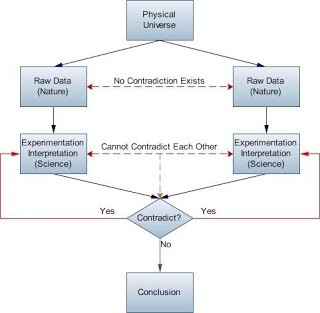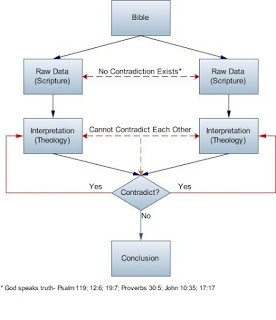A little while ago I was discussing a sonnet by Jon Donne with several high school students. (I know you discuss sonnets all the time.) The sonnet by Donne was one that mocked death, comparing it to a sleeping pill. Actually, it compared it to opium but said that opium was better. Anyway, the theme of the sonnet was that death was nothing more than a slave who was used to cause people to fall asleep only to waken unto eternity, and therefore, it should not be feared.
I asked the students if this was a good view of death. They concluded that it was provided there was life after death. So I asked, “Is there life after death?” Some said yes, and some said no. I asked them how they knew. No one had an answer. So I asked, “Do we just have to have faith one way or the other? Are we just left to wish and hope for an afterlife, or can we know?” This seems like an important question to answer. They agreed.
They then asked me what I thought. I told them that I think we can know if there is an afterlife because I think we can know if God exists. They, of course, asked me how. I, in turn, asked them if it was possible that God might exist. All of them said yes. Mind you, of this group of eleven, at least seven of them are not believers in Jesus; yet all of them agreed that it was possible that God might exist. This is what most people believe.
With an agreement that God might exist, I asked if this God could do unnatural things in this natural world. I asked if miracles would be possible. They all said yes, every one of them. I asked them why they thought miracles could be possible. They explained that if God existed and made the world, He could do what He wanted in it. They agreed that walking on the water you created is not really that hard to believe. I said they were smart. And then I asked, “So if God exists and could perform a miracle, could He not use a miracle to tell us who He is?” They all responded to my question with a yes. So I asked, “Has He?” They just looked at me, but I could tell that they wanted to know. So I told them about the resurrection of Jesus.
I told them that I think the resurrection both tells us that God exists and which religion is the right one. I then told them about the evidence. I explained that virtually all historians who have studied the resurrection believe three things: that Jesus died by crucifixion, that the disciples believed they saw Him risen, and that they died for preaching that He had risen. I then asked how they would explain these facts, how they could explain the rise of Christianity without the resurrection.
One student said, “Well, maybe Jesus didn’t actually die. Maybe He survived.” I said that is a fair idea, but let’s talk about it. A theory that Jesus survived the crucifixion would have to involve the following: before Jesus was crucified He was beaten, flogged, forced to carry a cross, and given a crown of thorns to be embedded in His head. We understand what a beating is. We can imagine a crown of thorns, regardless of the size of the thorns. But, let’s make sure we know what flogging is.
Flogging is when you are whipped by a device that has several leather straps with bone and metal and other sharp objects attached on the ends. Their purpose is to dig into the flesh and rip it off when it is pulled back. It tenderizes and defleshifies you. (They were repulsed at my made-up word “defleshify.”) I told them that many men die just from this type of torture alone.
After torturing Jesus, He was crucified. Many people are now familiar with the crucifixion. But just to be sure that my students had the facts straight, I explained to them that one often dies by suffocation on the cross and how it is excruciating. Hanging on a cross forces your lungs to stop working because the way you hang prevents you from breathing. The only way to breathe is to push up from your feet that have been nailed to the cross to relieve the pressure and take a breath. You live as long as you have energy, or until they break your legs to keep you from taking another breath.
Jesus’ legs were not broken, but this was the manner in which He died on a Roman cross. To ensure that He was dead, the trained Roman guards stuck a spear into Jesus’ side. After Jesus was taken off the cross, He was wrapped in seventy pounds of linen, placed in a dark and damp cave-like tomb, and there He remained for three days.
I told my students that to believe the theory that Jesus survived the cross you would have to believe that He woke up after three days, unwrapped himself, folded the linens, rolled away a stone, took out a couple of trained Roman guards, walked on nailed-pierced bloody feet, presented Himself to the disciples in this condition, and they said, “Oh my God! You have risen from the grave and are Lord!”
I asked my students, “Does this seem likely?” One responded and said, “More likely than a resurrection!” I said he was probably right in terms of probability but then asked if Jesus arriving in this condition would lead the disciples to think that He was God and perpetuate their preaching of His deity, forgiveness of sins by faith in Him, and a future hope of a resurrected body like His. First-century people were not idiots. They would have known the difference between a resurrection and a survival.
Many students agreed with this assessment. Some did not. One of those asked if it is possible if the disciples just hallucinated. I told them that was a fair question and many people hold that view. But, I asked him, “Do people share the same hallucination? If you and your friend were ‘tripping’ would you see the same thing?” He said, “No, and I know.” We laughed. Modern psychology agrees with him. Group hallucinations do not happen.
At this point, another student chimed in and said, “I think they just made it up!” So I asked, “You think that the disciples made up that Jesus rose from the grave and then died for their conspiracy for no reason? Why do you think this, do you have any evidence?”
He said, “No, but that’s just what I believe.”
I encouraged him to base his belief on something more substantial than his opinion because so much is at stake. He said, “Ahhh.” Not all stories end well, but hopefully, this is not the end of this student’s journey to Jesus.
Our group conversation ended with some believing, some being more open to Christianity, and some were exactly like they were before we talked. I encouraged them to have reasons for their beliefs. Much is at stake when it comes to God, and if He exists, you want to have settled that issue before you meet Him in the afterlife. I told them that I look forward to future conversations with them, and to this day, many more conversations have followed.
Opportunities to share the gospel abound if one is looking. In every situation with nonbelievers, ask yourself what about our immediate context and conversation points to God. Then be brave and steer your conversation to the cross.
Michael C. Sherrard is a pastor, a writer, and a speaker. Booking info and such can be found at michaelcsherrard.com.
Original Blog Source: http://bit.ly/2okR0rP














